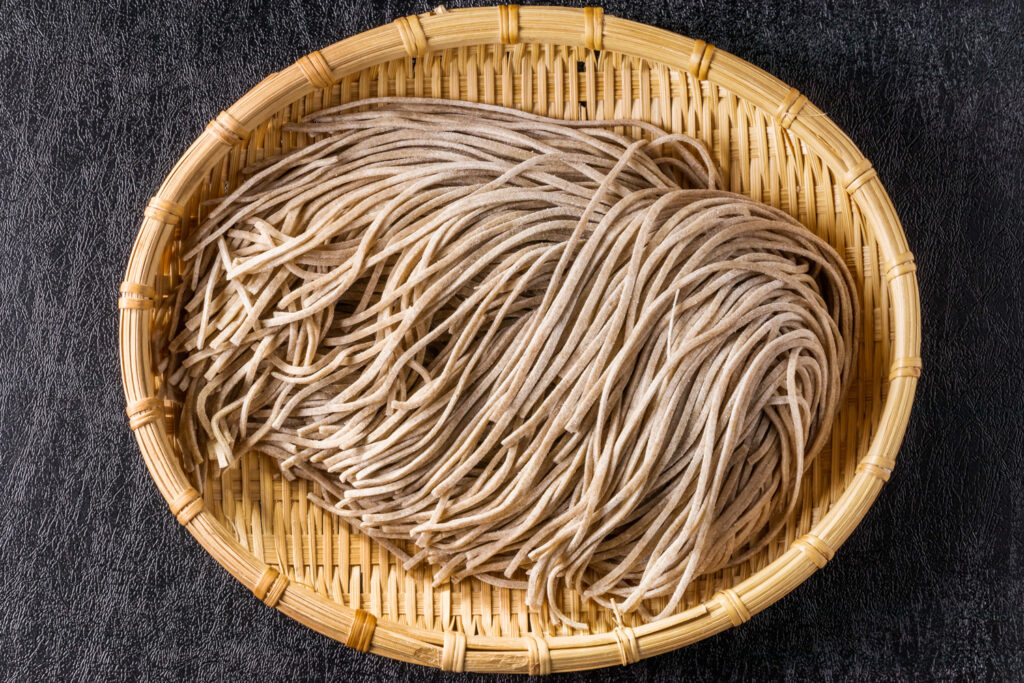Soba noodles are a traditional Japanese dish made from buckwheat flour. They have gained popularity worldwide due to their unique flavor and nutritional profile. However, as with any food, there are debates about whether soba noodles are good or bad for you. In this comprehensive guide, we will explore the various aspects of soba noodles to help you make an informed decision.
Nutritional Benefits:
Soba noodles offer several nutritional benefits. Buckwheat, the primary ingredient in soba noodles, is rich in fiber, which aids digestion and promotes a healthy gut. These noodles are also a good source of vitamins and minerals, including thiamin, riboflavin, magnesium, and manganese. Additionally, buckwheat contains antioxidants that may help reduce inflammation and lower the risk of chronic diseases.
Low in Calories:
Soba noodles are relatively low in calories compared to other types of noodles or pasta. A serving of soba noodles typically contains around 100-150 calories, making them a suitable option for those watching their calorie intake. This can be particularly beneficial for individuals aiming to maintain a healthy weight or lose weight.
Gluten-Free Option:
Since soba noodles are made from buckwheat flour, they are naturally gluten-free. This makes them an excellent choice for individuals with gluten sensitivities or celiac disease. However, it’s important to note that not all soba noodles are gluten-free, as some manufacturers may mix buckwheat flour with wheat flour. Therefore, if you have a gluten intolerance, make sure to look for 100% buckwheat soba noodles.
Potential Downsides:
While soba noodles offer numerous health benefits, there are some potential downsides to consider. Firstly, some store-bought soba noodles may contain a high proportion of refined wheat flour instead of buckwheat flour. This can reduce their nutritional value and increase the glycemic index, causing a rapid rise in blood sugar levels. It’s crucial to read labels carefully and opt for brands that prioritize the use of whole buckwheat flour.
Sodium Content:
Another aspect to consider when evaluating soba noodles is their sodium content. Some packaged soba noodles may be high in sodium due to added preservatives or flavorings. Excessive sodium intake can contribute to high blood pressure and other health issues. Therefore, it’s advisable to choose low-sodium options or prepare homemade soba noodles using minimal salt.
Serving Size and Portion Control:
As with any food, moderation is key. While soba noodles can be a healthy addition to a balanced diet, it’s important to pay attention to portion sizes. Consuming large quantities of noodles, even if they are relatively low in calories, can still contribute to weight gain. Be mindful of your serving size and pair soba noodles with plenty of vegetables and lean proteins for a well-rounded meal.
Preparation and Cooking Methods:
The way soba noodles are prepared and cooked can also affect their overall nutritional value. Boiling soba noodles in water is the most common method, but be sure to follow the cooking instructions to avoid overcooking, which can lead to a mushy texture. Additionally, consider stir-frying or adding soba noodles to soups and salads for variety. Avoid deep-frying soba noodles or consuming them in excessive amounts of sauces, as this can add unnecessary calories and unhealthy ingredients.
Personal Considerations:
Lastly, it’s essential to consider your personal dietary needs, preferences, and goals when deciding whether soba noodles are a good or bad choice for you. If you enjoy the taste and texture of soba noodles and they fit well within your overall diet, they can be a healthy and satisfying option. However, if you have specific health conditions, dietary restrictions, or allergies, it’s best to consult with a healthcare professional or registered dietitian for personalized advice.
In conclusion, soba noodles can be a nutritious and delicious addition to a balanced diet. They offer various health benefits, including fiber, vitamins, and minerals, and are a gluten-free option for those with sensitivities. However, it’s important to choose high-quality soba noodles made from 100% buckwheat flour and be mindful of portion sizes and cooking methods. As with any food, moderation and individual considerations are key to incorporating soba noodles into a healthy eating plan.













